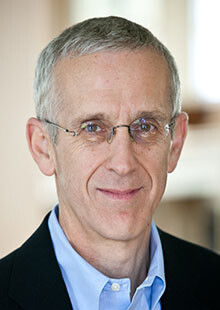Renowned Climate Diplomat Joins YLS Professors to Teach Global Climate Change Course
Last December in Paris, high-level representatives of nearly 200 countries gathered to negotiate a global agreement to hold back rising temperatures. They did so with grim awareness that 14 of the 15 warmest years on record have occurred since the year 2000. When the historic conference concluded, the member nations had agreed by consensus on a number of measures, including to keep global temperatures "well below" 2.0 degrees C (3.6 degrees F) above pre-industrial times; to limit the amount of greenhouse gases emitted by human activity to the same levels that trees, soil and oceans can absorb naturally, beginning between 2050 and 2100; to review and potentially scale upward each country's contribution to cutting emissions every five years; and for rich countries to provide "climate finance" to help poorer nations adapt to climate change and switch to renewable energy.

In the wake of the conclusion of the historic Paris Climate Change accords, Yale Law School Professors Harold Hongju Koh and Douglas A. Kysar asked Todd D. Stern to join them in teaching a Fall 2016 course at the Law School on The Past, Present and the Future of Global Climate Change: Law and Policy. For more than seven years, Stern was the Obama Administration’s Special Envoy for Climate Change and widely acknowledged as one of the most critical forces behind the successful outcome in Paris.
The novel course covers the international law and policy of global climate change, with a particular focus on the rules, institutions, and procedures of the 1992 United Nations Framework Convention on Climate Change and its protocols. The course considers how the climate regime evolved over time from the now-moribund Kyoto Protocol regime to progress at Copenhagen, Cancun, Durban, and finally the breakthrough in Paris, which, in the words of President Obama, “establishe[d] the enduring framework the world needs to solve the climate crisis.” The course, which includes students from Yale Law School, Yale School of Forestry and Environmental Studies (FES), and Yale College, introduces students to a number of key players who helped shape the current climate change regime, and invites them to discuss and debate its future. Among the distinguished guests joining the course will be: Bo Lidegaard, until recently editor in chief of Politiken and a former diplomat who was the key strategist for host nation Denmarkat the Copenhagen Conference; Susan Biniaz, Deputy Legal Adviser of the U.S. State Department: Professor Dan Bodansky of Arizona State University Law School; Professor Rob Verchick of Loyola University New Orleans College of Law; and Julie Oettinger, former Assistant Administrator for Policy of the Federal Aviation Administration.
The overall aim of the course is to give students a broad understanding of the basic design features of the regime, the fundamental policy choices and decisions that structure it, and key issues involved in its implementation both now and in the decades to come. Individual sessions address the substantive and strategic development of the climate regime from the UN Framework Convention in 1992 through Paris, and cover such topics as Climate Science, Climate Finance, the Legal Architecture of the Paris Agreement, Climate Change Economics and Domestic Policy, Climate Change in Other Fora (such as the International Civil Aviation Organization and the International Court of Justice), and Future Issues and Challenges.
“No one in the world knows more about how our current climate change regime came to be than Todd Stern, and no one has done more to give our children the prospect of a regime that can contain global warming,” said Professor Koh, the former Legal Adviser of the Department of State. “What Todd knows simply cannot be conveyed in one or several lectures, so it is a profound privilege that he has decided to reflect on his experience with us here at Yale.”
“Although much still remains to be done to ensure that the Paris Agreement leads to durable and substantial change, the nations of the world have a better shot at success now than at any other time in the history of climate negotiations,” said Professor Kysar. “The story of how the diplomatic needle was threaded in Paris is a remarkable one and much of the credit goes to Todd Stern. We are incredibly fortunate to have him join us this semester.”
Mr. Stern stated: “It is a great privilege for me to be able to teach at Yale this semester with Professors Koh and Kysar. Climate change is a pivotal issue for all of us, and our capacity to address it with the necessary boldness, urgency, determination, ingenuity and wisdom will profoundly affect our lives. Climate is also a subject as fascinating as it is important, at once domestic and international, substantive and strategic, implicating science, the environment, economics, national security, law, politics and public opinion. I look forward to a great semester.”


